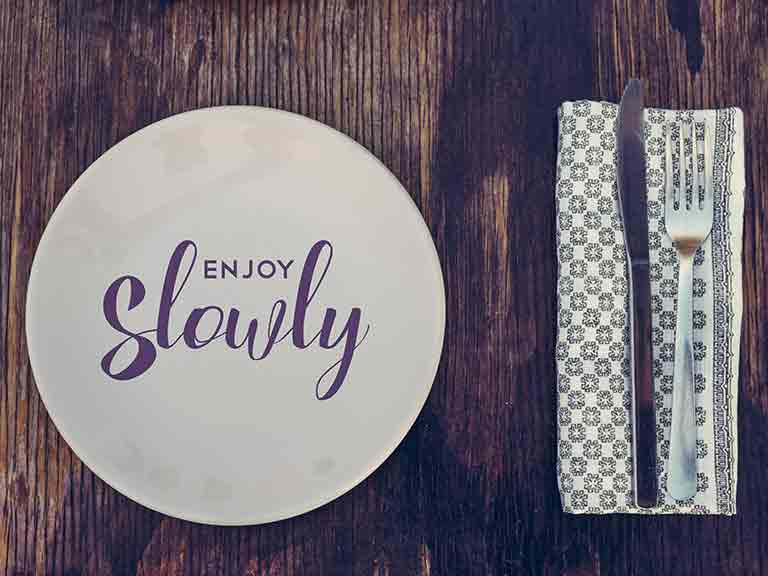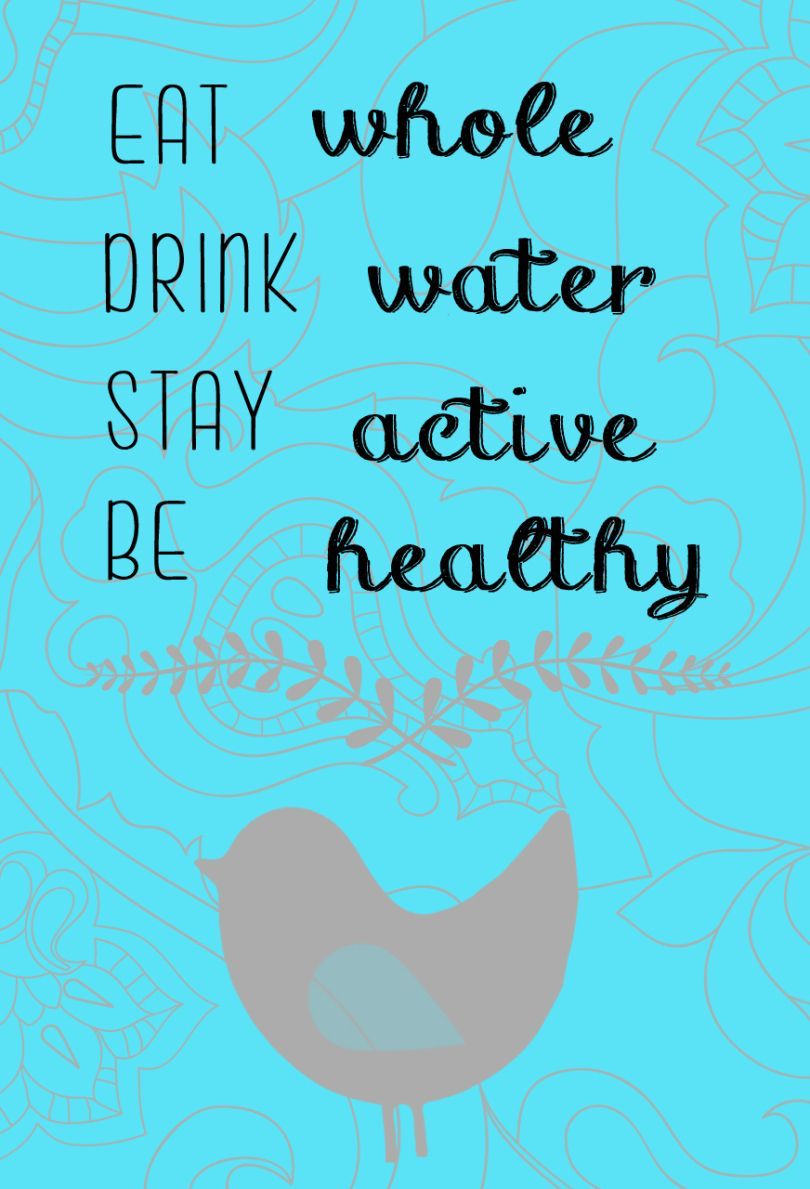Eat Slowly & Mindfully...
How does one learn how to eat slowly? This has been a recurring challenge for me throughout my life. I've had days where I could put an anaconda to shame - nearly dislocating my jaw and inhaling my meal - the curtains and dust bunnies start flying and my dog runs for cover. The reason? I didn't make time for a meal. I've placed more importance on my to-do list than my personal health.
Here are some great ways to get yourself to eat slowly:
Besides the obvious scheduling time, I challenge you to take it a step further - become more intimate with your food. Stop laughing! It doesn't require smooth jazz, bathrobes or candles.
Start embracing the beautiful act of cooking. For me, cooking healthy meals increases mindfulness. I appreciate the act of preparing the food and cooking it. I want to extend this appreciation for my efforts and ingredients by savoring them. I've been teaching myself to respect the food, to pay homage to its ability to not only satisfy hunger and please the palate, but its most important and overlooked function - keeping me alive! Eat slowly, acknowledge the gift.
Yes, you can try to eat your soup with a fork or use smaller plates, but I'm not into playing games. For me, being mindful trumps everything if you want to eat slowly.
Another way of practicing mindfulness is to actually count the the number of times you chew your food and putting down your utensils after each bite. Depending in the type of foods you eat, a good range is between 15 and 20 chews per mouthful.
Another reason which helps me eat slowly is better digestion. It doesn't take a rocket scientist to realize the following: Inhaling my food in a short time period does not bode well for my intestines or my dear wife who has to suffer the aftershock of my gastronomic blitz - nuff said. Be kind to yourself and those around you!
Oh, and one more benefit when I take time to eat slowly: I feel fuller sooner.
Translation: I eat less per meal.
Translation: I begin to loose weight! Couple this with downing a large glass of water with your meal and you are on your way to a healthier
you.
I've found these suggestions to be of great benefit. I still have days where I drift back to my old habits, but I recover much faster. This is a marathon, not a sprint.
I wish you much success as we face our challenges together!
Eat Slowly: Give Your Digestion a Chance
We all know we should eat slowly and chew our food properly, so why is it do difficult to remember to do it? Long-established habit rides roughshod over the best of intentions, and before you know it, you are gulping your food down again.
Maybe you lead a very rushed life and find you have to eat 'on the go', but rushing your food and not chewing enough can cause indigestion and worsen conditions like IBS.
And what's more, eating too quickly can also make you fatter!
Fast eating makes you fat
When you eat, it takes time for 'fullness' or 'satiety' signals to travel to your brain.
If you rush your food you will eat much more before these signals kick in, resulting in your consuming more food than you need. So by just slowing down when you eat you can mange your weight better not to mention actually being able to enjoy your food more.
Eat slowly: Digestion begins in the mouth
The digestion of carbohydrate actually begins in your mouth, and then continues in your small intestine. Protein is digested mainly in your stomach. When you chew, your stomach is sent messages about what is on its way and so can prepare the correct enzymes. So eating slowly and chewing properly improves your digestion in many ways.
Eat Slowly: Overcoming the fast eating habit
It is difficult to remember to eat slowly because rushing your food becomes a habit over time and habits are maintained unconsciously.
Because hypnosis works at the unconscious level then we can use it to naturally slow down your eating. This will ensure you feel fuller earlier so you avoid over-eating, and greatly improve your digestion, with many potential benefits for your health.

